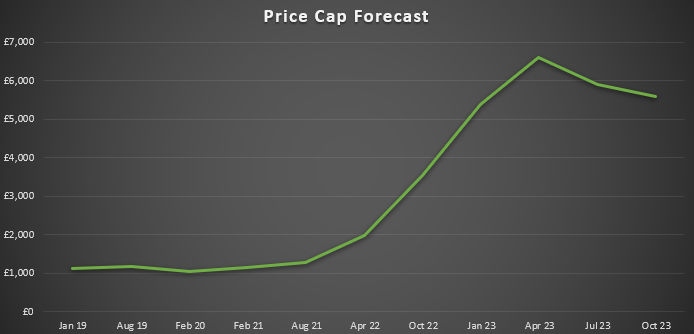Exclusive: Demand has to be tackled alongside supply, says energy boss

The Government needs to combine support for households with policies that will cut supply demand, argued Good Energy boss Nigel Pocklington.
The chief executive of the renewables-only supplier believed a price cap freeze was a “proportionate” response to the energy crisis.
However, he argued that the lack of focus on reducing energy usage – which can be achieved through insulation, ramping up renewables, and consumer behaviour changes – meant households were still burdened with unnecessary costs.
Pocklington told City A.M.: “No proposed solution to this crisis is credible without an urgent plan for reducing energy demand and increasing cheaper renewable generation. We need to see that from the new administration too.”
Incoming Prime Minister Liz Truss is reportedly weighing up a price cap freeze and a loan scheme for suppliers funded by banks to protect households over a challenging winter.
The energy price cap will climb to a massive £3,549 per year in October, and is expected to rise further over the New Year, with Cornwall Insight predicting a peak of £6,616 per year in April.

Energy bills have spiked since the pandemic, powered by market carnage, rebounding demand and increased fears of supply shortages following Russia’s invasion of Ukraine.
The Conservative Environment Network also called for a greater focus on easing demand.
Senior Climate Programme Manager Jack Richardson warned that boosting North Sea oil and gas supplies will not solve the energy crisis alone.
He believed that it was unrealistic to expect the continental shelf to provide supplies to meet the entire country’s own demand for gas, let alone replace Russian shortfalls in Europe.
Richardson said: “You have to reduce demand as well – this includes more cheap renewables so we use less gas for power production and reducing the amount of gas we waste through insulation and energy efficiency. It would make sense to lift the de facto ban on onshore wind if we’re doing it with fracking, given it’s far more popular, proven to work, and cheaper.
The Conservative Environment Network is an independent forum advocating net zero and nature restoration.
The group is based in London, with dozens of Tory MPs signing up to its environmental pledges.
Richardson acknowledged that changing consumer behaviour and cutting demand was not a factor conservatives “naturally tend to go for” and that it was politically easier to focus on the supply side.
However, he argued that “we need policies for both” when situation is as serious as the current crisis.
He said: “People will want advice and leadership from the Government to get their bills back under control.”
Suppliers struggle with advice to cut demand
Striking the right balance between helpful advice such as lowering the temperatures for boiler flow rates and trivial help has proved difficult for energy firms.
Several suppliers have been caught out providing unhelpful advice with Ovo Energy criticised widely earlier this year for offer pamphlets to customers telling them to do star jumps and cuddle their pets to keep themselves warm.
EON UK was also slammed on social media for offering free socks to customers with slogans about reducing energy usage.
However, behavioural changes could ease household bills with data from Centrica suggesting even turning off TVs left on standby could take £150 per year off people’s energy bills.
Meanwhile insulation such as cavity wall and loft insulation can cut as much as £650 per year from household energy bills – with EDF Energy calling for a nationwide insulation campaign.
Jan Rosenow, Director at energy think tank Regulatory Assistance Project has predicted that insulating homes pays back four times quicker in the UK from October 2022 compared to just 12 months year ago.
This is because gas prices are skyrocketing, with gas still being used to heat 85 per cent of UK homes.
The UK’s housing stock is among the least efficient in Europe, with the latest research from B&Q owner Kingfisher revealing that poorly insulated households will see their energy bills rise over £700 more than energy users living in more efficient properties.